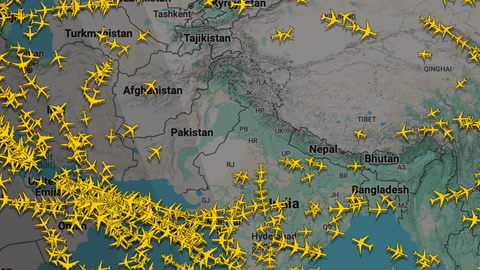Pakistan has incurred an estimated Rs4.1 billion loss in overflight revenue following its decision to ban Indian-registered aircraft from its airspace, Defence Minister Khawaja Asif informed the National Assembly. The move, implemented from April 24 to June 30, 2025, came in response to India’s unilateral suspension of the Indus Waters Treaty and was part of Pakistan’s broader national security measures.
The Pakistan Airports Authority (PAA) reported that the ban affected 100-150 Indian flights daily, reducing transit traffic by 20%. This is not the first such financial hit—Pakistan previously lost $54 million during the 2019 airspace closure after the Balakot crisis. Despite the losses, Asif stressed that “sovereignty outweighs economic considerations”, reaffirming Pakistan’s commitment to national security.
The minister clarified that while Pakistan’s airspace remains open to all non-Indian airlines, Indian airspace is also off-limits to Pakistani carriers. Before the tensions, Pakistan earned an average of $508,000 daily from overflight fees. However, no adjustments were made to aeronautical charges during the recent restrictions, showcasing the PAA’s financial resilience.
Asif reiterated that protecting Pakistan’s sovereignty is non-negotiable, even at a financial cost. “No price is too high when defending our homeland,” he declared. With no immediate resolution in sight, the aviation sector braces for continued challenges as geopolitical tensions dictate airspace policies. Will diplomatic efforts reopen these crucial routes? The coming months may hold the answer.














